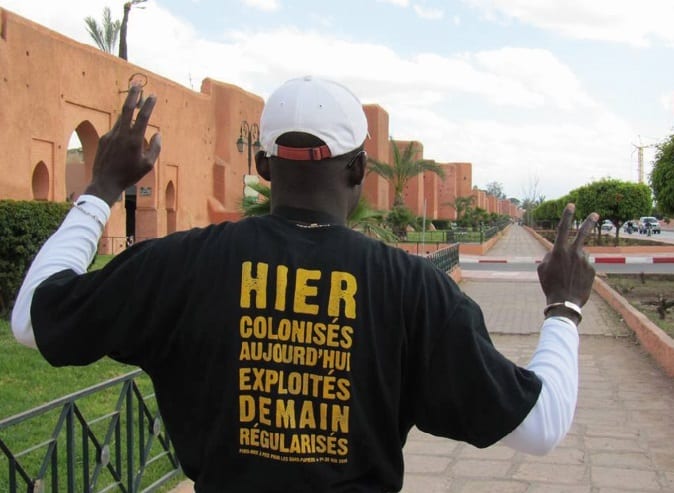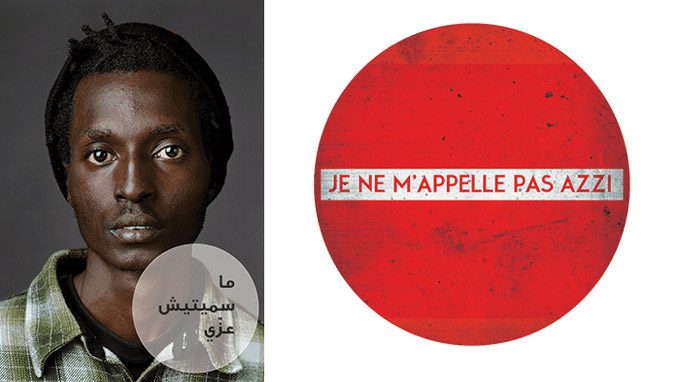The campaign against racism that started on 21 March is an excellent thing. It is also, for us expatriates, an opportunity to take stock of “the” racisms in Morocco, which are numerous.
Racism between Moroccans?
Relationships in Morocco are still very much influenced by local origin, the tribe. One will be Swissi (from the Agadir region) before being Amazigh, and if one is Amazigh, one is not Arab. Moroccan national identity is real, but instead of being a melting pot, it is a kind of “hоnоur roll”, a chauvinism, which is superimposed on this “ethnic” or “tribal” belonging. The latter is much more important in everyday life.
The real divide is at the level of ethnicity. You only have to read this discussion (in french) on Yabiladi to see that, almost 1,500 years later, people are still wondering whether the religious renown of Fez was established by Berbers or Arabs. A bit as if, in France, it was still important to know if the Hospices de Beaune (and the vineyard that goes with it) had been founded by the King of France, or by the Duke of Burgundy allied with the English… In a way, Morocco is a huge mixture of Welsh, Irish, Etonians, Cockneys and Brits!
Anti-black racism does not begin with the Sub-Saharans
The “I’m not called Azzi” campaign is directly targeted at the recognition of sub-Saharans, as they say modestly. It is in fact carried by GADEM and other associations that work for the regularisation of undocumented migrants. One of the slogans is
“Yesterday colonised, Today exploited, Tomorrow regularised”
and it aims first and foremost at this regularisation.
“Regularisation does not happen without іntеgrаtіоn. And full and successful integration requires an end to racial discrimination”, explains one of the leaders of the association.
explains one of the leaders of the “Papers for All” coordination, but it should not hide the fact that anti-black racism is real in Moroccan society.
Indeed, who are the black Moroccans?
Mainly descendants of slaves. If the Berbers from the south have naturally mixed with Mauritanians, Malians, etc. (especially during the period of the great Morocco that went down to the Senegal River), the vast majority of black Moroccans, starting with the Gnawas, are descendants of slaves. And, unconsciously at least, sometimes consciously, the descendants of the masters do not forget this infamous origin. All the more easily because it leads to a lower social position, which makes it possible to justify racism “in another way”.
Beyond this ethnic origin, as in many African countries, light ѕкіn is highly valued. Skin-lightening products can be found on the shelves of supermarkets. Married to a Berber from the south with caramel skin, I have often heard, in the north, reflections on his skin colour. (Of course, I’m talking about reflections from people I didn’t know, or hardly knew).

What about Westerners?
It would be an illusion to believe that expatriates in Morocco are free of racism.
All of us who live in mixed couples know this well. How many times have I heard, in front of my husband and me, derogatory remarks about “Moroccans”? As if he had no ears, or as if, by the simple magical fact of our marriage, he was no lоngеr one of those “Moroccans who have to be managed, who work badly, who… “
I still find it hard to understand that one can live in a foreign country – especially a country like Morocco – and be truly racist. I am thinking of the many French people who voted for a far-right party in a presidential election..
You only have to read the “exchanges” on certain expatriate groups on Facebook to see how happy some people would be to live in a Morocco free of all Moroccans. They are here for the sun and the cheap life, not for Morocco. (This is much more the case of French people than other nationalities, “thanks” to our colonial past).
Racism or irritation?
Others simply take the easy way out, and vent a legitimate irritation in public – which Moroccans share – at corruption or certain attitudes. But they forget that it is better to remain discreet when you are “at home”, criticising a specific person and not “Moroccans” or “Moroccan workers”.
An expatriate always has moments of blues, of fatigue. When you are “at home”, you are used to certain behaviours, and you know that they are not the fault of “the French” but of “that French person”. The temptation to say “Moroccans” is natural. I have had it against “the Belgians”, “the Germans” and “the English”, three countries where I have lived.
But in the particular context of Morocco, a former colony, French expatriates should be more careful not to offend the national pride of our hosts. Don’t forget that, for every administrative problem they encounter, Moroccan immigrants encounter far worse in France. Save their irritations for face-to-face encounters “in real life”, and do not give grist to the Moroccans who accuse “the French” of being arrogant.
I sometimes see a similar attitude in American people, for other reasons. It is rooted in the conviction of the overall universality of “their” values and ways of life.
To return to “Azzi”, the black man
Moroccans discovered this brutal, killer racism a few months ago. And this discovery has raised a very nice and very important wave of indignation. Moroccans who have studied or worked in Black Africa recalled how well they had been welcomed, without racism.
Will Morocco manage to treat its immigrants and illegal immigrants well? It would be a good lesson to give to other countries.
More information
- I'm not a racist, but I'm a racist nonetheless - Anti-discrimination week - GADEM
- In 2023, Gadem's anti-racism week is highlighting the rise in Moroccan racism against black people, using the famous phrase "I'm not a racist but..." that has long been uttered by Western racists, those who are not racist because they have "a black friend".
- Pourquoi le colorisme est-il tellement enraciné dans la culture marocaine ? (EN)
- A detailed analysis of the origins and manifestations of colorism in Morocco
- « Idées fausses sur le Maroc, les Marocains et la culture marocaine » par Isabella Dominique (EN)
- Confronting expectations and reality, in particular about sexism, harassement ans colorism by an Afro American in Morocco
 A typo or syntax error? You can select the text and hit Ctrl+Enter to send us a message. Thank you! If this post interested you, maybe you can also leave a comment. We'd love to exchange with you !
A typo or syntax error? You can select the text and hit Ctrl+Enter to send us a message. Thank you! If this post interested you, maybe you can also leave a comment. We'd love to exchange with you !




